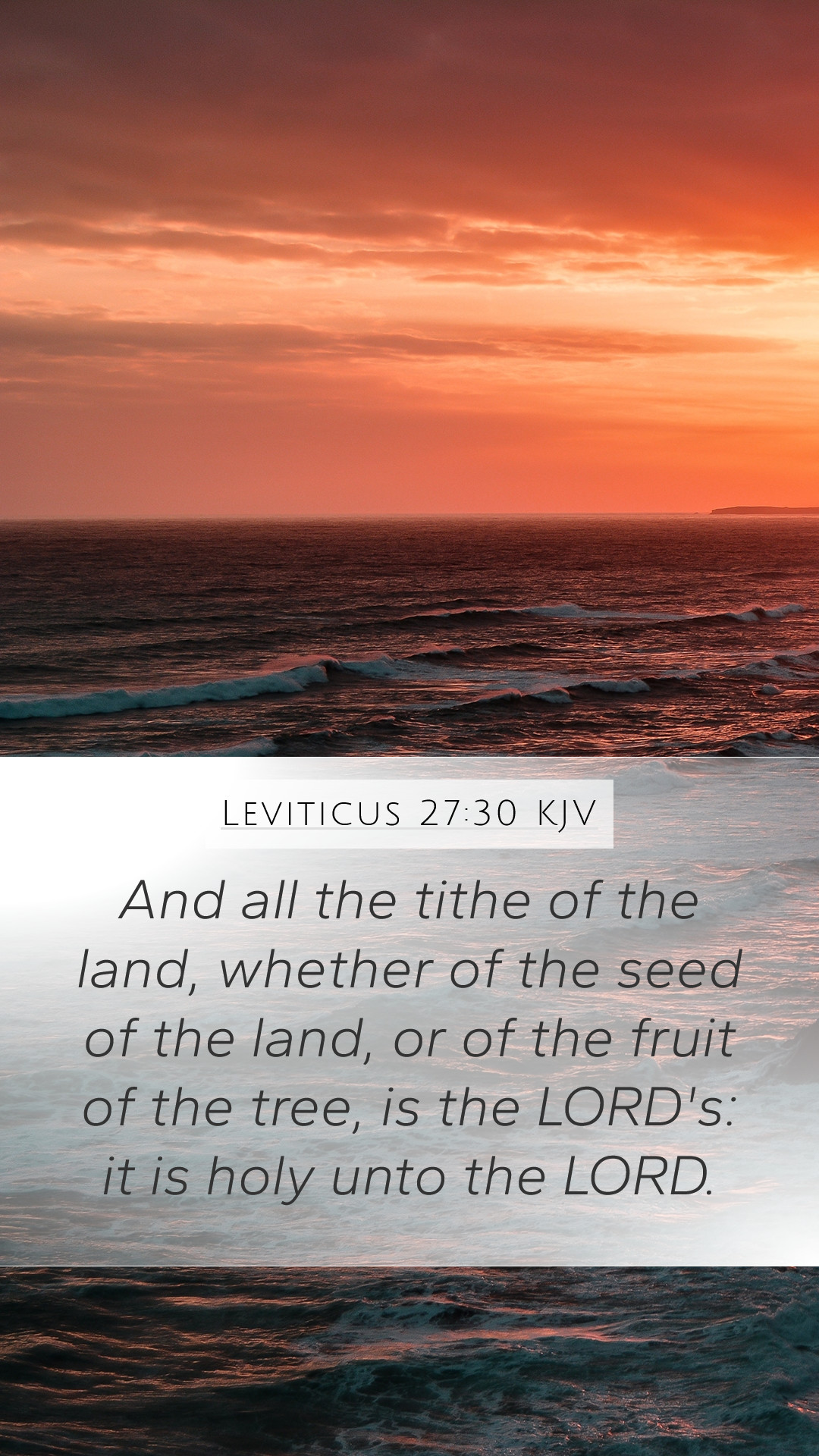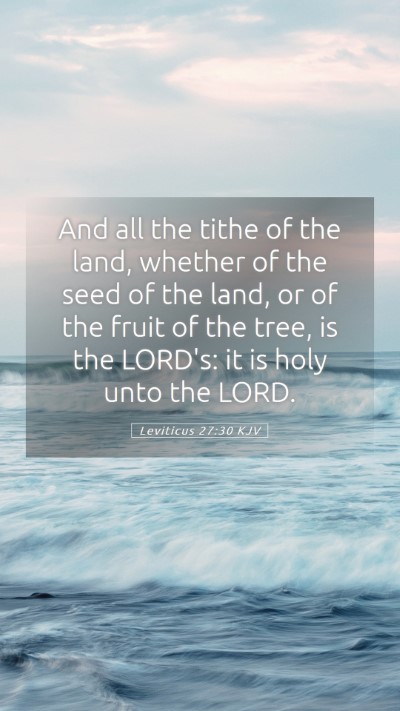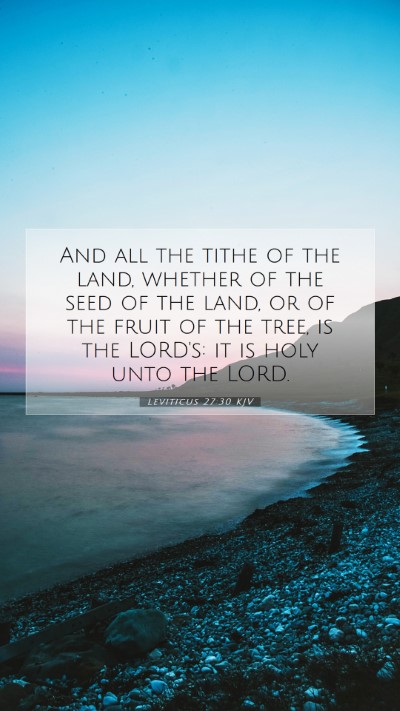Bible Verse Meaning and Commentary: Leviticus 27:30
Bible Verse: Leviticus 27:30 - "And all the tithe of the land, whether of the seed of the land or of the fruit of the tree, is the Lord’s: it is holy unto the Lord."
Summary of Meaning
This verse outlines the importance and sanctity of tithes in the biblical context. A tithe is recognized as a specific percentage of one's produce or income, given to God as an acknowledgment of His provision. It establishes a fundamental principle of stewardship, where believers are encouraged to dedicate a portion of their resources to God, recognizing His ownership over all things.
Commentary Insights
Matthew Henry's Commentary
Matthew Henry emphasizes that tithing is rooted in the acknowledgment of God's sovereignty. He stresses the idea that the tithe is a demonstration of gratitude and dependency on God's blessings. Furthermore, he points out that it is not merely a duty but a privilege to consecrate a part of one's income to God, thus acknowledging that all we have comes from Him.
Albert Barnes' Commentary
Albert Barnes highlights the historical context of the tithe in Israel, pointing out that it was not just a law but also a practice that signified a response to God’s generosity. He notes that by designating the tithe as holy, it serves as a reminder of God's covenant and the sacred nature of worship through giving. Barnes further explains that tithing reflects an attitude of worship and trust in God's continued provision.
Adam Clarke's Commentary
Adam Clarke explores the significance of holiness attributed to the tithe. He interprets this holiness as a separation unto God, meant for divine purposes. Clarke relates this practice to the broader concept of dedicating one's life and resources to God’s service, illustrating that this act is an essential aspect of Israel's covenant relationship with God.
Importance of Tithing
The act of tithing is not merely a financial transaction; instead, it encapsulates a broader understanding of relationship dynamics between God and believers. Here are some key principles derived from Leviticus 27:30:
- Acknowledgment of God's Ownership: Tithing serves as a reminder that everything belongs to God.
- Commitment to God: It demonstrates a believer’s commitment to God’s work and purposes.
- Encouragement of Generosity: Tithing encourages additional acts of charity and generosity beyond the tithe.
- Spiritual Discipline: Regular tithing instills a habit of discipline and intentionality towards stewardship.
Application in Daily Life
Understanding the implications of Leviticus 27:30 can positively impact one’s daily life by:
- Fostering Trust in God: Recognize that giving encourages reliance on God for provision.
- Promoting a Generous Spirit: Cultivating habits of generosity not only benefits others but enriches the giver.
- Enhancing Church Support: Understanding the importance of tithing can encourage support for one’s local church and its mission.
- Strengthening Community Bonds: Engage actively with community and church life through shared resources and support.
Related Bible References
- Malachi 3:10 - The challenge to bring the whole tithe into the storehouse.
- Deuteronomy 14:22-23 - Instructions for tithing in Israel.
- 2 Corinthians 9:6-7 - The heart behind giving and its implications for blessings.
Conclusion
Leviticus 27:30 serves as a significant reminder of the practice of tithing within the biblical framework. Through insights drawn from renowned commentaries, this verse reveals essential truths about possession, surrender, and divine provision. Engaging with this scripture encourages believers to reflect on their stewardship, fostering a culture of generosity and commitment to God's kingdom.


